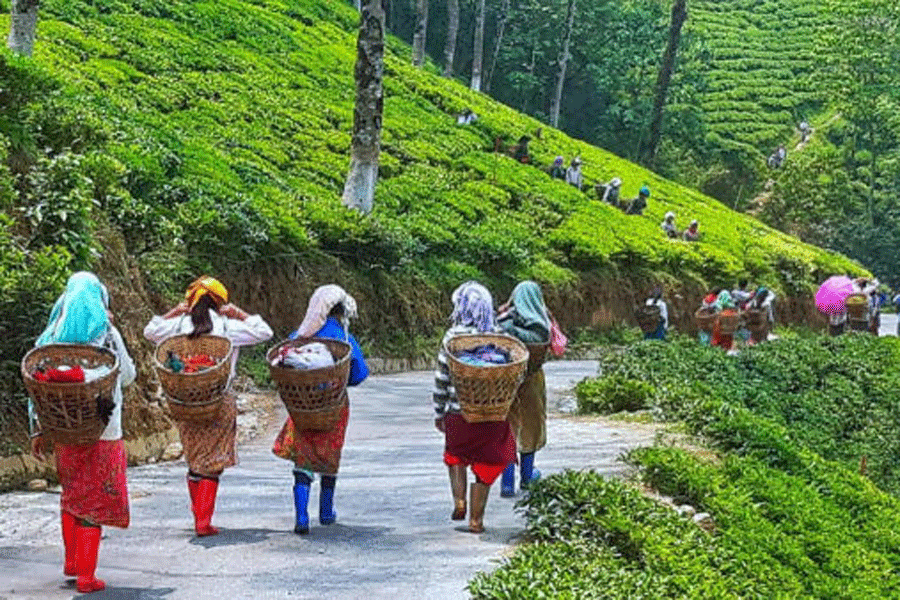Planters in north India, including Bengal, have written to the Tea Board of India requesting that the fledgling “Bharat Auction” system be scrapped and the old system that had been in vogue for over 160 years be brought back, blighted by the low prices the brew has been fetching under the new mode.
The Bharat system, which the planters believe has hobbled the bidding process and made it difficult for small buyers to participate, has allegedly led to a steady decline in auction prices since its introduction in April by scrapping the English auction system. The English system, according to sources in the Calcutta Tea Traders Association, had begun its journey in 1861 through the country’s first tea auction in Calcutta.
Atul Asthana, chairman of the Consultative Committee of Plantation Associations (CCPA), the apex body of tea planters’ organisations, wrote to Sourav Pahari, deputy chairman of the tea board on Friday, pointing out that the constituent associations were concerned about “the sharp decline in tea prices after implementation of Bharat Auctions”. The tea board functions under the Union commerce ministry.
“Depressed price realisation in Auctions is adversely impacting the cash flow of all tea producers at the time when the industry is under obligation to fulfill several financial commitments in September/October like workers’ bonus,” Asthana’s letter said.
Bharat Auction has been introduced only in north India — at the auction centres of Calcutta, Siliguri and Guwahati.
“On September 12, the constituent associations of the CCPA attended a virtual meeting where a unanimous resolution was adopted to write to the tea board with the request to suspend the Bharat Auction system and revert to the English auction system immediately,” a source said.
Tea industry veterans said recovery of fair prices had been difficult under the new system. “The switch (to the English system) is urgently needed so that the tea producers get a fair price,” said the Siliguri-based planter.
He explained that under the Bharat Auction model, the bids have to be entered before the lots (each lot containing 30 tea packets) go live for auction. But under the English system, bids could be made till a lot was “knocked off”, or sold. According to the planter, the new system restricts the bidding process.
Also, under the previous system, division of lots was allowed and smaller buyers could participate. “As it cannot be done under the new system, small buyers cannot participate. Thus, the competition is less and the prices are low,” the planter said.
According to data available with the tea board, the average auction price in north India in 2022 was Rs 206.07 per kilo from January to August. This year, the average price in the corresponding eight months has come down to Rs 189.09.
“In August, the average price was Rs 227.65 per kilo in 2022. This year, it has reduced to Rs 194.85. A similar trend has been witnessed over the past five months, that is, since April,” another tea planter said.
The planter said that since its inception in 1861, the English system had undergone many changes.
“We adopted e-auction in 2009. There were certain problems when the changes were incorporated. But this time, the new system has been a major problem for the industry as it is affecting prices,” he said.
Trinamul trade union leaders supported the planters.
Alok Chakraborty, chairman of the Darjeeling (plains) district Trinamul, said there had been a decline in auction prices across north India in the past five months.
“It seems the BJP government is keen to promote ‘Bharat’ in every sector, even if it jeopardises a century-old industry like tea that provides employment to over a million people across India. The fall in prices due to a faulty auction system is not a healthy sign for the sector. The tea board should immediately take appropriate steps,” Chakraborty said.
Pahari, the tea board chairman, couldn’t be contacted. A source in the board said they had received the CCPA letter. “Meetings had been held on the new auction system. If required, more such talks can be held with the stakeholders,” the source said.










